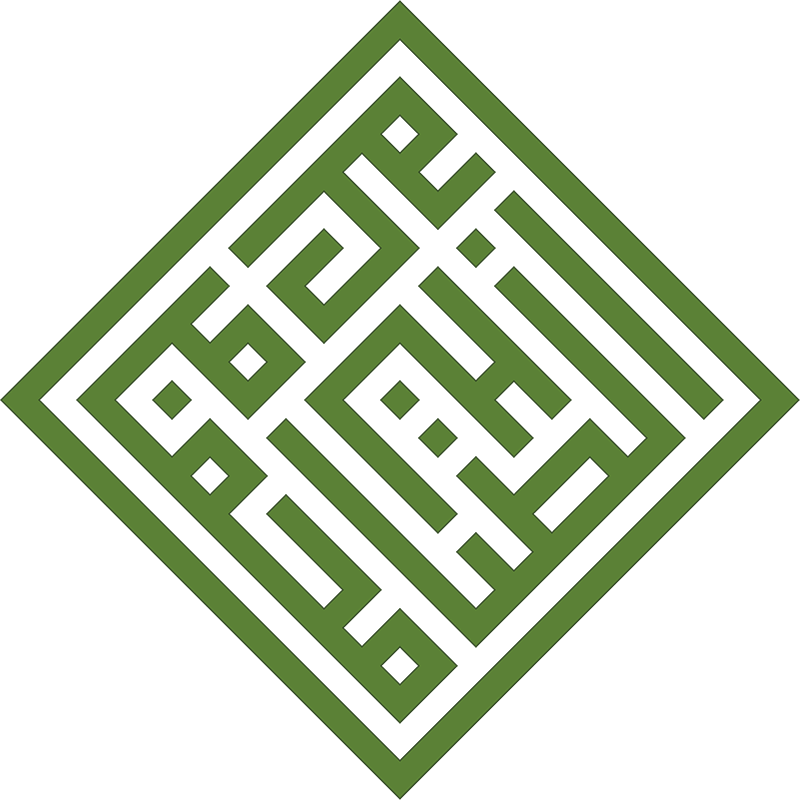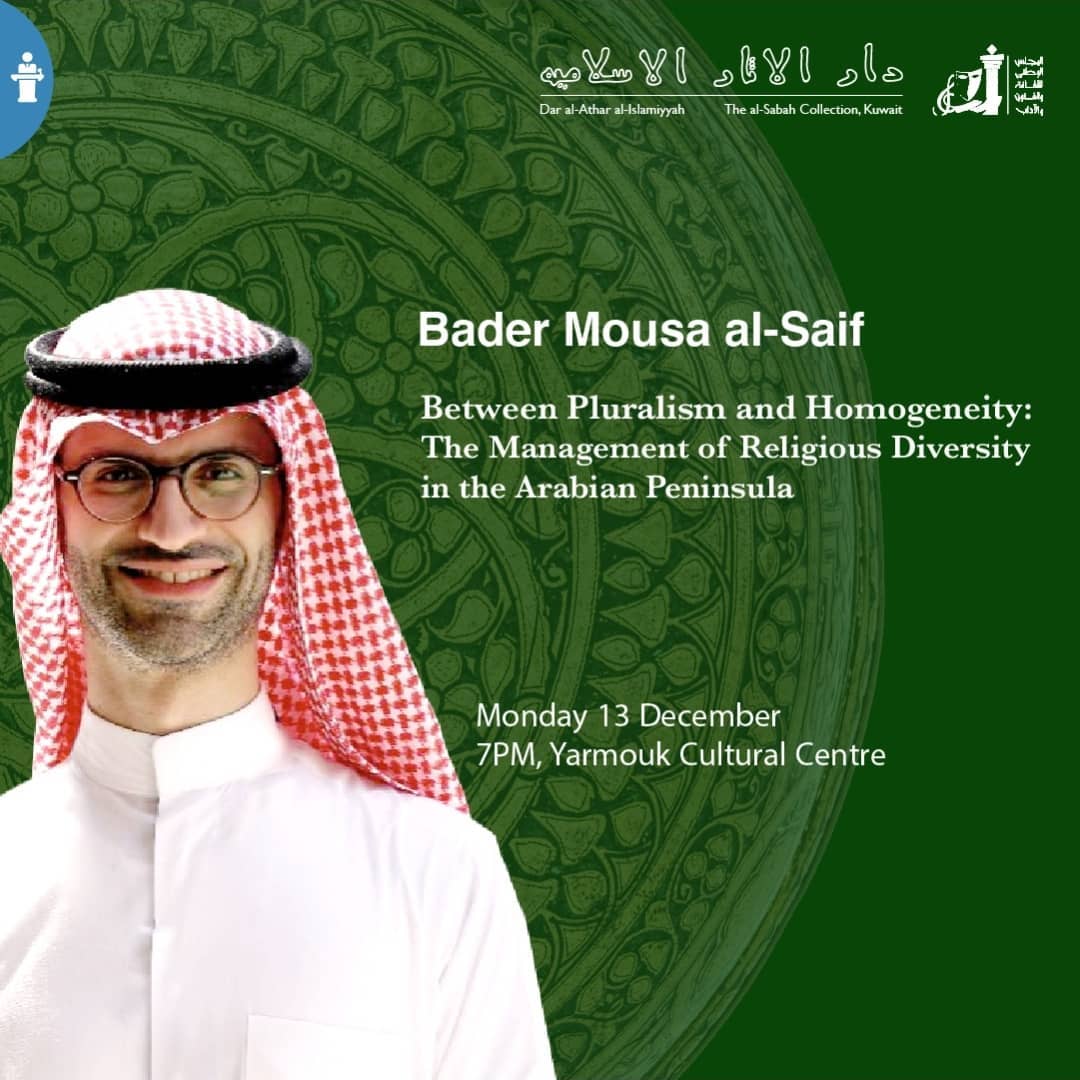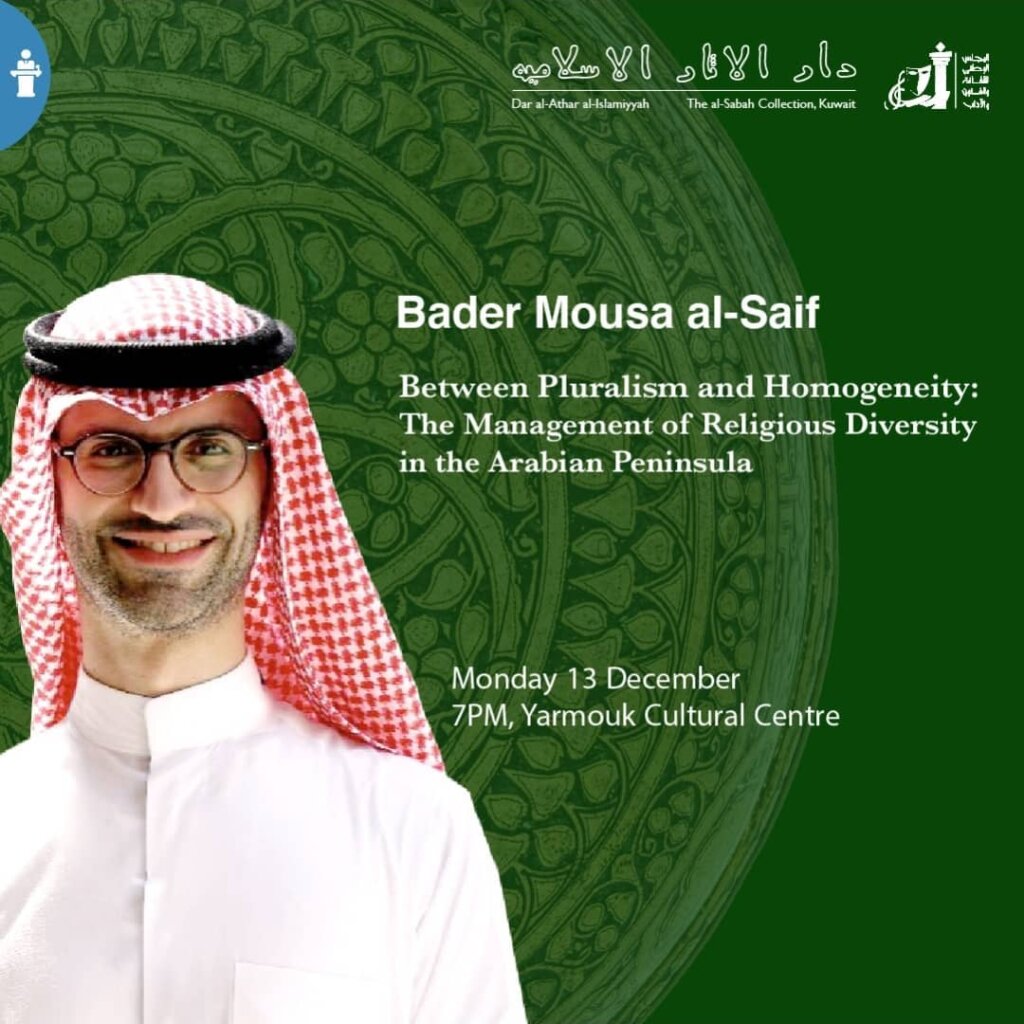“Between Pluralism and Homogeneity: The Management of Religious Diversity in the Arabian Peninsula” presented by Dr. Bader Mousa Al-Saif.
The Arabian Peninsula boasts an unequivocal diversity of backgrounds, experiences, and religious traditions. This fluid plurality has always been an inherent part of the Arabian Peninsula; however, it was silenced at certain historical junctures when promoting a homogeneous alternative. he argues that the attitude toward religions in the Arabian Peninsula moved through three stages: a past nonchalant attitude; a modern linkage of emerging nation-states with an exclusive rendition of Islam; and a contemporary vacillating attitude that mixes traces of the more open past with remnants of the modern era’s guarded outlook. Informed by Subaltern Studies and Marxist thought, pursuing erasure and trivialization methods help decode Arabian Peninsula.
Bio
Bader Mousa Al-Saif is an assistant professor of history at Kuwait University and a nonresident fellow at the Malcolm H. Kerr Carnegie Middle East Center. He focuses on the modern and contemporary history and politics of the Middle East (particularly the Gulf and Arabian Peninsula), intellectual history, Islamic thought, and gender studies.





